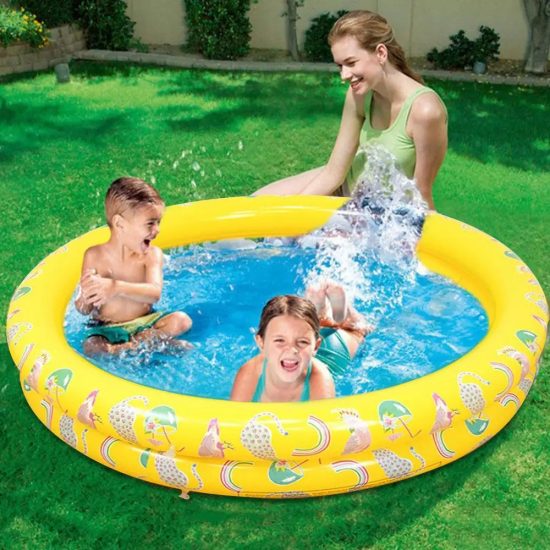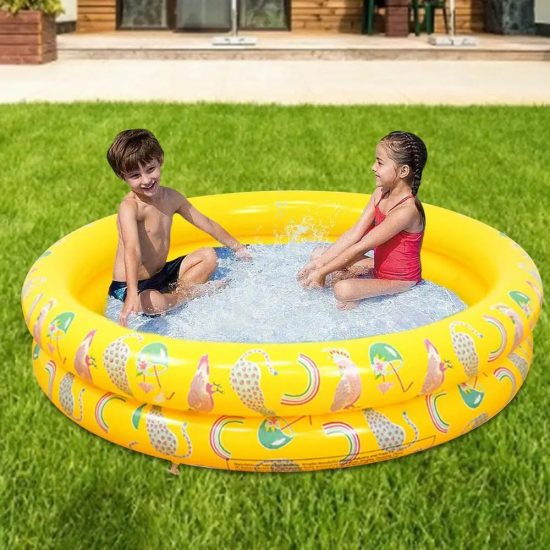When it comes to setting up a pool in your backyard, choosing between inflatable and rigid options requires consideration of various factors. Here’s a breakdown of the pros and cons of each:
Inflatable Pools:
Pros:
- Affordability: Inflatable pools are generally more budget-friendly, making them accessible for those looking for a temporary or cost-effective solution.
- Ease of Installation: Setting up an inflatable pool is relatively easy and doesn’t require permanent fixtures. They can be quickly inflated and placed wherever desired.
- Portability: Their lightweight and deflatable nature make inflatable pools convenient for storage and transportation, ideal for renters or those seeking temporary options.
- Variety of Sizes and Shapes: Inflatable pools come in various sizes, shapes, and designs, offering versatility to suit different needs and preferences.
Cons:
- Durability Concerns: While durable, they are more prone to punctures or tears compared to rigid pools, requiring careful handling and maintenance.
- Limited Lifespan: Inflatable pools typically have a shorter lifespan compared to rigid pools due to wear and tear from repeated inflation and use.
- Less Stability: They may lack the structural stability of rigid pools, especially for activities like diving or vigorous play.
Rigid Pools:
Pros:
- Durability: Rigid pools, made of materials like fiberglass or metal, are more durable and can withstand prolonged use, weather conditions, and wear better than inflatables.
- Longevity: They have a longer lifespan, providing a semi-permanent or permanent solution for those seeking a lasting pool option.
- Increased Stability: Rigid pools offer greater stability and depth, allowing for diving, swimming, and more vigorous activities safely.
Cons:
- Higher Cost: Rigid pools generally come with a higher upfront cost due to materials, installation, and additional accessories required.
- Installation Complexity: Setting up rigid pools involves more complex installation processes and may require professional assistance, adding to the overall cost.
- Limited Portability: Once installed, moving or relocating a rigid pool is challenging compared to deflatable inflatable pools.
Choosing between inflatable and rigid pools depends on factors like budget, intended use, space availability, and long-term plans. Each option offers distinct advantages and drawbacks, catering to different preferences and needs in creating your perfect backyard oasis.


